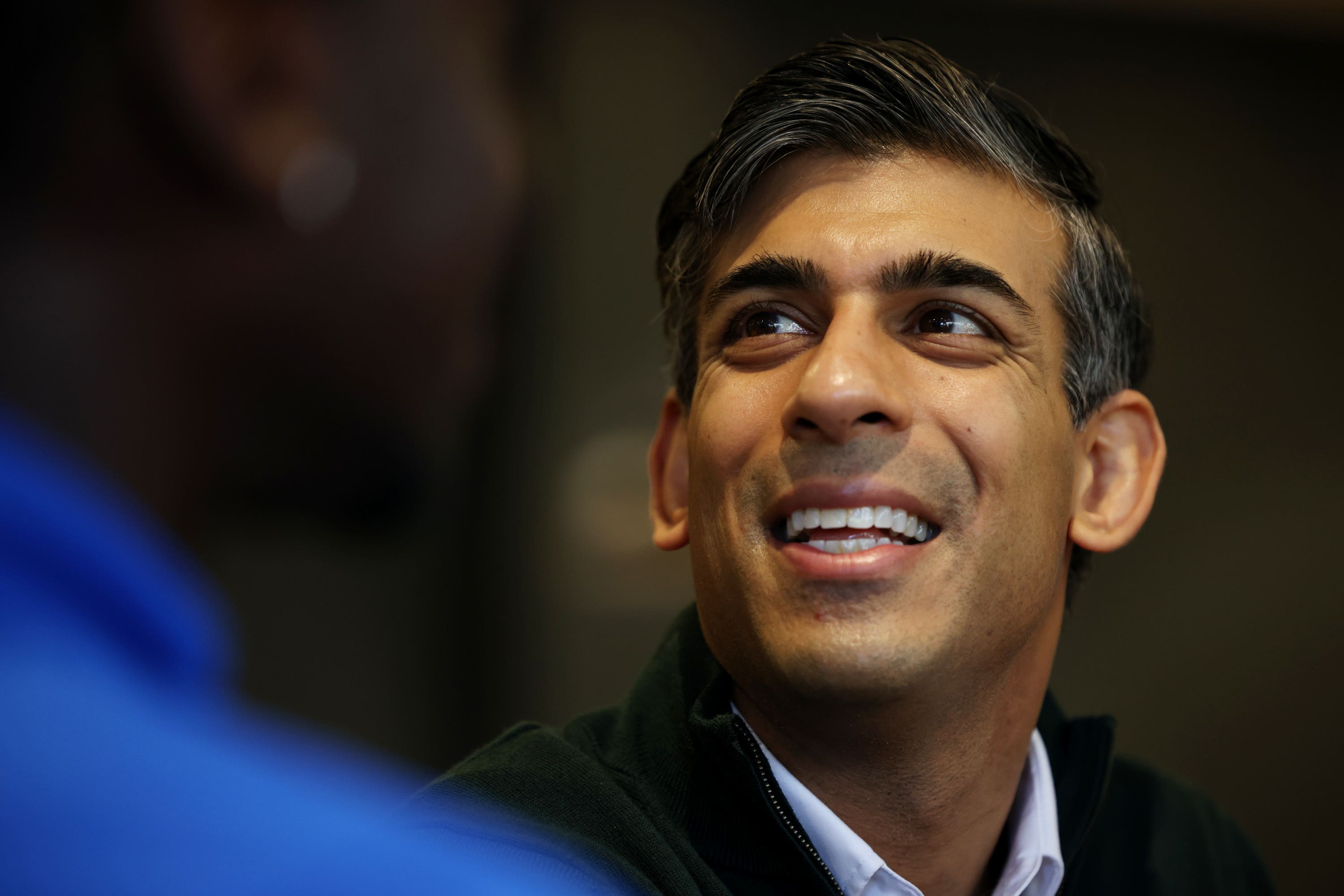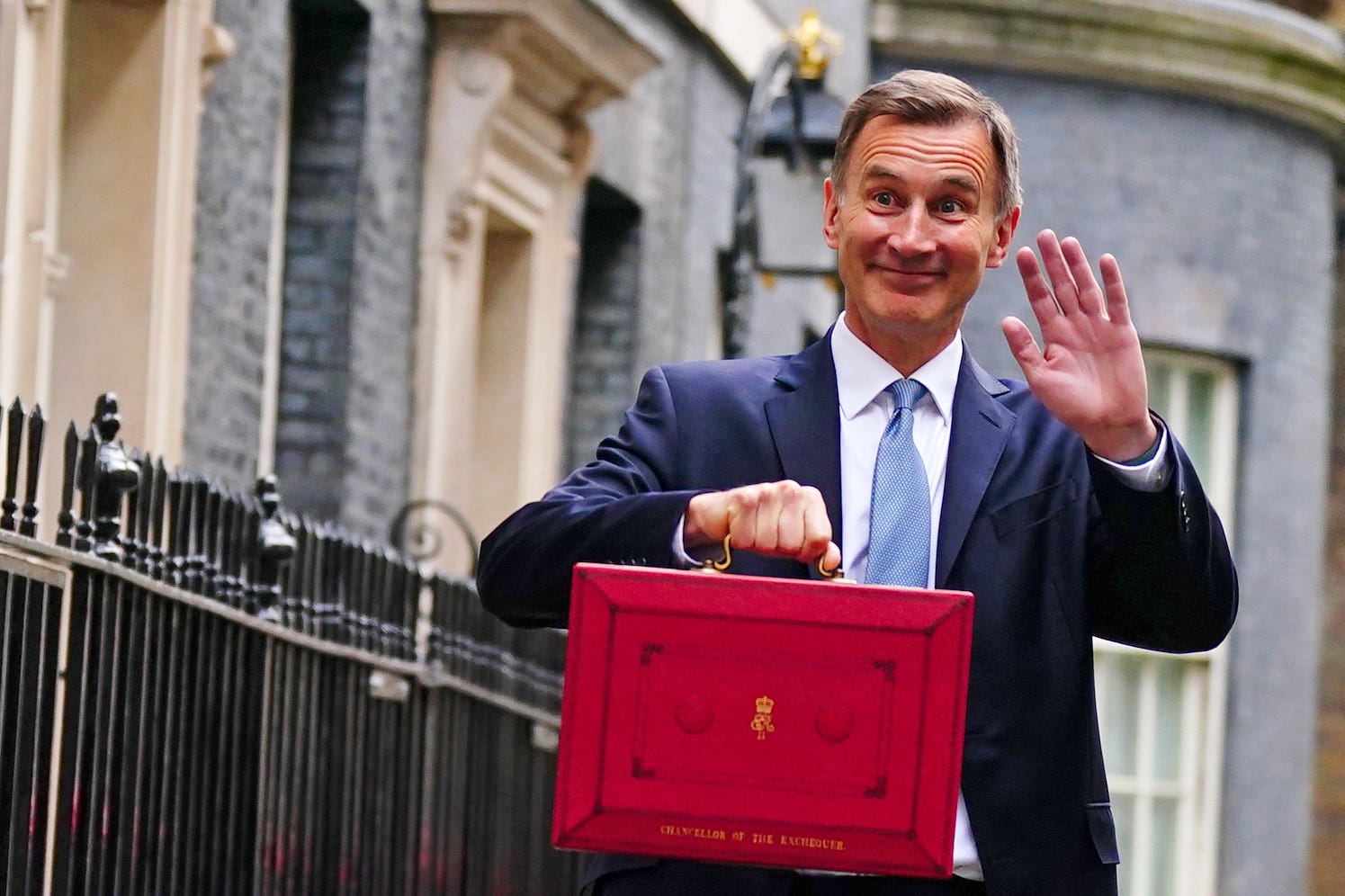Rishi Sunak hints at pre-election tax cut to win votes
The prime minister is plotting a tax giveaway in his March Budget, which could be the last before voters head to the polls this autumn
Rishi Sunak has said there is “more to come” in terms of tax cuts as he prepares a pre-election bid to win votes.
The prime minister is plotting a tax giveaway in his March Budget, which could be the last before voters head to the polls this autumn.
With Britain’s tax burden at a post-war high, despite a national insurance giveaway in November, Mr Sunak has signalled he wants to make a fresh offer to voters.
He said on Friday the 2p cut to the main rate of national insurance that came into force this month had been a “tax cut for 27 million people in work”.
He added: “And we said that we do want to cut taxes for future events when we can responsibly do so.
“Our priorities are very clear. It is controlling spending and welfare so that we can cut people’s taxes. The plan is working, because we are already doing it — stick with it and there is more to come.”
Mr Sunak hopes a giveaway will help eat into Labour’s 18-point poll lead over the Tories.

Chancellor Jeremy Hunt has also fuelled speculation about further tax cuts on the horizon. Just weeks after the influential Institute for Fiscal Studies warned that personal taxes are still going up despite the national insurance cut, Mr Hunt said lower taxes was the “direction of travel we would like to go in”.
Speaking at the World Economic Forum in Davos, Mr Hunt said: “I look around the world and I see that the parts of the world like the United States, like Asia, that are growing the fastest, have the most dynamic economies, tend to be places with lower taxes,” he told Sky News.
“And that was why in the autumn statement, we decisively cut taxes.
“So my priority in the budget will be growth, because if I can grow the economy, that will mean that then we have more money for the NHS, we can relieve the pressure on families, we can invest in our brilliant armed forces.”
Speculation about tax cuts has been rife since November’s autumn statement, with Tory backbenchers clamouring for the government to ease the burden.
Mr Hunt had been considering cutting inheritance tax ahead of that statement, and could revive the plan before March’s statement.

He may also opt for a personal tax cut such as lowering the rate of income tax.
Labour has accused Mr Sunak and the chancellor of offering voters a “raw deal”, claiming the PM has given out £2 worth of tax cuts for every £10 taken through higher taxes. Shadow chancellor Rachel Reeves described the tax cut as a “cynical giveaway”.
And Adam Corlett, principal economist at the Resolution Foundation think tank, said: “For many, particularly those earning less than £26,000, the [national insurance cut] will be offset by the tax rise that is effectively coming in April, when personal tax thresholds are frozen again.”
While chancellor, Mr Sunak controversially froze the thresholds at which taxes come into effect, dragging more households into paying tax or even into higher tax brackets.
Under current plans, the Resolution Foundation says anybody earning under £26,000 will be worse off, with the tax cut benefiting those earning £50,000 a year the most – to the tune of almost £500.
The IFS said a worker earning the average salary of £35,000 would be £440 worse off by 2028.
And overall, the tax burden is still on course to be the highest since the Second World War.
Join our commenting forum
Join thought-provoking conversations, follow other Independent readers and see their replies
Comments
Bookmark popover
Removed from bookmarks